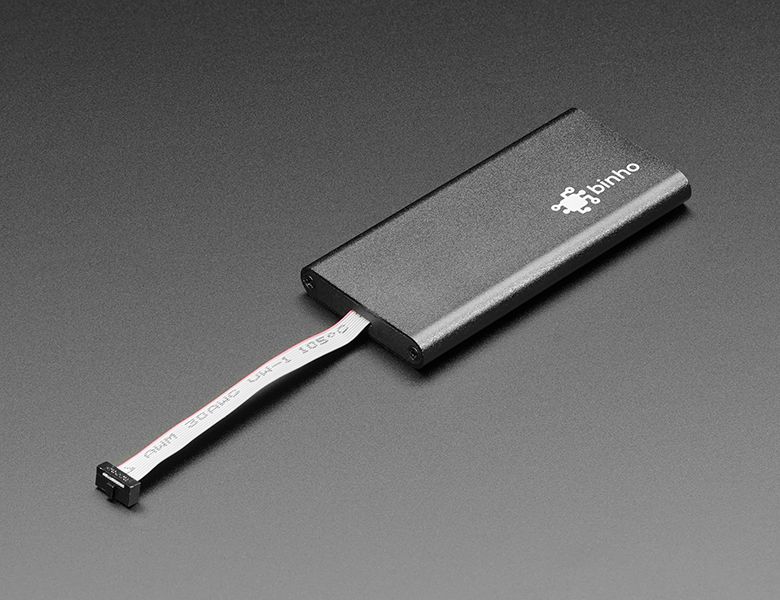
Nova by Binho
The Binho Nova brings Multi-Protocol USB Host Adapters into the 21st Century. No more fumbling through development with cumbersome, clunky, out-dated adapters. Let your productivity soar to new heights!
With support for I2C, SPI, UART, 1-WIRE, SWI protocols all in one slim, robust package, it may even be the last adapter you’ll ever need…
With an intuitive user interface, our software is the quickest, simplest way to get up and running with your new Binho Nova. Whether you’re working in a Windows, Linux, or macOS environment, our cross-platform solution has you covered. Alpha build available now with I2C, SPI, and IO functionality.
- Support for SPI @ 12MHz max clock
- Support for I2C @ 3.4MHz max clock
- Support for UART @ 1000000 max baud
- Support for Dallas 1-Wire
- Support for Atmel Single-Wire Interface
- Provides 3v3 and VUSB power rails
- 1 x DAC Output, 5 x ADC Inputs
- GPIO / Interrupt / PWM Support
- Programmable RGB Status LED
- Field-Upgradeable Device Firmware
- Cross-platform Support for Windows, Mac, Linux
- Robust, low-profile Aluminum Enclosure
- USB Type-C Connector
Purchase
Contribute
Have some info to add for this board? Edit the source for this page here.
Adafruit Blinka Installation
We use a special library called adafruit_blinka (named after Blinka, the CircuitPython mascot) to provide the layer that translates the CircuitPython hardware API to whatever library the Linux board provides.
For example, on Raspberry Pi we use the python RPi.GPIO library. For any I2C interfacing we'll use ioctl messages to the /dev/i2c device. For SPI we'll use the spidev python library, etc. These details don't matter so much because they all happen underneath the adafruit_blinka layer.
